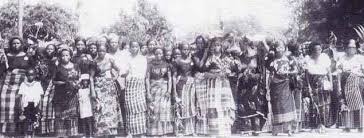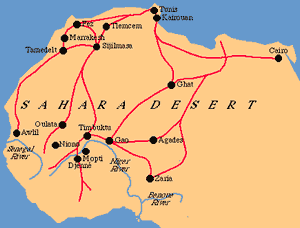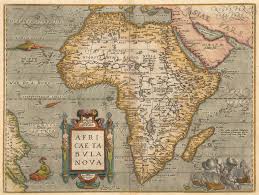The Aba Women’s War of 1929: Nigeria’s Forgotten Feminist Uprising

The Aba Women’s War of 1929: Nigeria’s Forgotten Feminist Uprising
Explore the Aba Women’s War of 1929, a powerful yet often overlooked feminist uprising in colonial Nigeria that challenged British rule and redefined women’s resistance.
In the annals of Nigeria’s resistance against colonial rule, few events stand out as boldly, and as powerfully, as the Aba Women’s War of 1929. This remarkable movement, driven not by swords or guns but by unity, defiance, and strategic mobilization, marked one of the first major uprisings led entirely by women in West Africa.
Too often, this monumental protest is reduced to a footnote or mischaracterized as a mere tax revolt. But in truth, it was much more: a feminist revolution, a rejection of colonial arrogance, and a loud, defiant reminder that women, especially African women, are not passive bystanders in history.
Colonial Rule and the Seeds of Rebellion
To understand the significance of the Aba Women’s War, we must first examine the context of colonial Nigeria in the early 20th century. After the British amalgamated the Northern and Southern Protectorates in 1914, they implemented an indirect rule system that relied heavily on local traditional leaders, many of whom were appointed or manipulated by the colonial government.
In southeastern Nigeria, particularly in Igbo regions where political systems were traditionally decentralized and led by councils or respected elders (both men and women), this structure was unnatural. The British appointed “warrant chiefs”, mostly male individuals given administrative authority, who disrupted the social fabric of the local communities.
Women were especially affected. Traditionally, Igbo women held significant socio-political roles. They had their own institutions like the Umu Ada (daughters of the lineage) and the Mikiri (women’s councils) through which they addressed societal matters, settled disputes, and even checked the power of male leaders.
However, under British rule, women were systematically excluded from governance, and their voices were silenced.
The Trigger: Taxation and Oppression
By the late 1920s, British authorities began preparing to extend direct taxation to women in the Eastern Provinces. This move came after years of exploiting the local economy and imposing taxes on men. Women were already burdened by colonial economic policies that destroyed indigenous industries, inflated prices, and introduced forced labor.
The final straw came when rumors spread that the colonial government was about to impose taxes on women. In a society where many women were already struggling to survive as farmers, traders, and mothers, the threat of additional taxation was seen as an attack on their livelihood and dignity.
In November 1929, this pent-up frustration exploded.
The Spark: The Incident at Oloko
The uprising began in Oloko, a town in present-day Abia State. A British colonial officer, Warrant Chief Okugo, instructed a colonial tax enumerator named Mark Emereuwa to conduct a census of women in preparation for taxation.
When Emereuwa arrived at the home of a widow named Madam Nwanyereuwa, he ordered her to “count her goats, people, and property.” She immediately understood the implications and refused. A heated argument broke out, and Nwanyereuwa marched straight to the town square to alert other women.
Within hours, women from neighboring communities began arriving in Oloko. Word spread like wildfire. Over 10,000 women, armed with nothing but their voices, leaves, and sheer courage, gathered to protest the proposed taxation and the abuse of colonial officials.
This was the beginning of what would later be called the Aba Women’s War.
Women’s Warfare: Not With Weapons, But With Strategy
The women employed a unique protest technique called “sitting on a man” (ogbo). This form of protest, rooted in Igbo tradition, involved gathering in large numbers to publicly shame, sing against, and criticize male authorities who misbehaved.
The women:
- Danced and sang protest songs tailored to the misconduct of specific chiefs or colonial agents.
- Blocked access to colonial courts and offices.
- Occupied spaces in front of warrant chiefs' homes.
- Used satire, ridicule, and symbolic gestures to challenge authority.
This form of resistance was communal, disciplined, and deeply symbolic. It drew on ancestral customs and adapted them for modern political activism.
The Spread and Scale of the Uprising
The protests quickly spread beyond Oloko to other parts of southeastern Nigeria, including Aba, Owerri, Bende, Umuahia, Calabar, and Opobo. Within weeks, over 25,000 women from various ethnic groups (mostly Igbo, Ibibio, and Ogoni) joined the movement.
Their demands included:
- The removal of corrupt warrant chiefs.
- An end to the taxation plans.
- Greater inclusion of women in local governance.
- Redress for grievances and mistreatment by colonial officials.
These were not just isolated riots. This was an organized political movement that challenged both colonial authority and the patriarchal structures that enabled it.
Colonial Response and Brutal Suppression
The British administration, stunned by the scale and coordination of the protests, responded with force. Police and soldiers were deployed to disperse gatherings, often firing live ammunition into crowds.
By the end of the revolt:
- Over 50 women were killed
- Hundreds were injured
- Many were arrested and imprisoned
Despite the violence, the women’s uprising shook the foundations of colonial governance in southeastern Nigeria. It exposed the failures of indirect rule and highlighted the central role women played in community leadership.
The Aftermath: Legacy and Reforms
In response to the protests, the British:
- Abolished many warrant chief positions.
- Suspended the plan to tax women.
- Created platforms for women to participate in local advisory councils.
But perhaps more importantly, the Aba Women’s War sent a clear message: African women would not be silent in the face of injustice.
The movement became a model for future activism and resistance. It inspired generations of Nigerian women, from market leaders to political activists, to claim their place in public life.
Nwanyereuwa and the Forgotten Mothers of Nigerian Feminism
Although no singular leader emerged as the face of the protest, Madam Nwanyereuwa remains one of the most recognized symbols of the movement. A widow, a mother, and a fearless defender of her rights, her defiance sparked a movement that redefined resistance in colonial Nigeria.
But she was not alone.
Thousands of unnamed women, traders, farmers, and artisans risked their lives in defense of justice. They may not be mentioned in most history books, but they are the true foremothers of Nigerian feminism.
The Aba Women’s War is not just a historical event; it’s a mirror. It reflects the power of grassroots organizing, the importance of cultural traditions in resistance, and the overlooked contributions of women in shaping political landscapes.
It reminds us that:
- Women have always been political.
- African societies have indigenous systems of checks and balances.
- Colonialism disrupted the gender equity that existed in traditional settings.
In today’s world, where women still face systemic oppression and marginalization, the Aba Women’s War remains an eternal source of inspiration and strength.
Conclusion
The Aba Women’s War of 1929 was not simply a riot. It was a revolution, a moment when Nigerian women stood up and demanded to be heard. It challenged both colonial domination and patriarchal structures, and it rewrote the narrative of who the political actors in African history truly were.
Let us remember the voices of Oloko. The footsteps in Aba. The songs in Calabar. Let us celebrate these women not just as historical figures but as the backbone of Nigeria’s long and ongoing journey toward justice.


